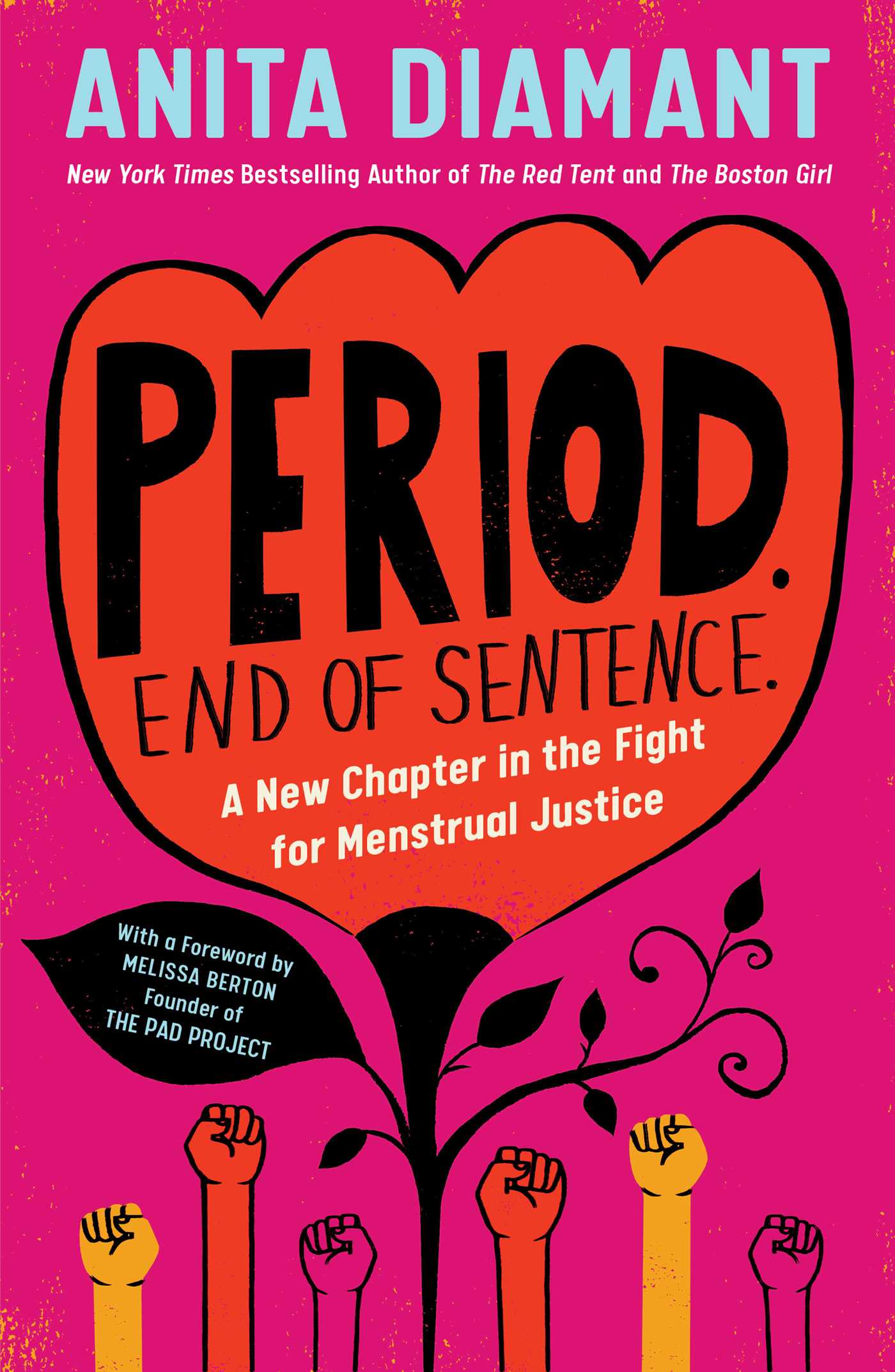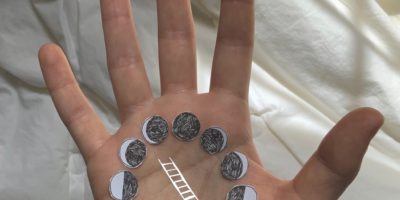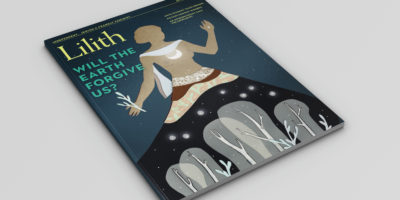
Talking All Things Periods with Anita Diamant & Emilia Diamant
My mom, writer and Jewish educator Anita Diamant, is my hero. It wasn’t always that way—I was sort of a nightmare as a pre-teen/teen—but now we’re really close, and now nothing is off the table when we talk. I was excited to chat with her about our new favorite family topic, menstruation! Her new book, Period. End of Sentence: A New Chapter in the Fight for Menstrual Justice, will be available on May 25th, wherever books are sold. I encourage you to find your local Black-owned bookstore to purchase it.
Here’s a snippet of our chat:
ED: Do you remember my first period?
AD: Not really, no. Do you?
ED: Um, I remember it was middle school, I think I was 12.
AD: I think I was 12, too. My mother hadn’t said anything about it so I think it was a little scary in the beginning. My clearest memory about early days is about swimming. I was at a pool in my bathing suit and I had a box of tampons. I remember spending a lot of time in that public bathroom trying to figure out how to get it in. But I was determined to go swimming so I figured it out. I think I was proud of myself for that.
ED: I think mine was after school or something—
AD: But you knew what was happening, right?
ED: Yeah, between you and health class, I knew what was going on. I don’t know that you and I had talked about periods, but I had read Are You There God? It’s Me Margaret. by Judy Blume, so I knew that periods were a thing.
AD: That was really the only book back then, right? There are lots of books now—more all the time—in dozens of languages for people all over the world. There’s a new one called “Mya Learns about Menstruation,” highlighting images of girls of color. And there is a ton of information online, everything from first-person stories from girls to solid information and advice from approachable lady gynecologists.
ED: This millennial especially loves TikTok gynecologists! I think one of the things I’ve noticed changing since I was younger is that the link between periods and pregnancy in popular media has sort of gone by the wayside. Now we see periods in other contexts, which I don’t really remember so much growing up.
AD: You’re right. Mentions of periods—in comedies and dramas—used to be about being “late,” with a storyline either about fear of being pregnant or grief at not being pregnant. Now it’s more part of daily life. There’s still a lingering attribution of hurricane-sized mood swings attributed to periods with PMS (premenstrual syndrome), but that also seems less common. In fact, girls and women are shown sort of owning the experience. As part of life.
ED: I’d be remiss if I didn’t mention a new piece of culture about menstruation—your new book! Period. End of Sentence. is just out. I know it was a labor of love and took a lot of research. What’s one of your favorite stories in the book?
AD: My friend’s 15-year-old daughter came home from school one day, furious. She held up one of her pads and said, “Why do I have to hide these?!” Her mother said, “Because nobody ever asked before.” And the daughter said, “Well, I’m not doing it anymore.” BOOM. I love that refusal to hide or pretend periods don’t exist; I think it says that there’s less shame—and shame about women’s bodies is toxic. Another favorite story is from a friend who told me that while visiting her thirtysomething son’s apartment, she noticed period products out on the vanity. Since he lived alone, she asked him why.
He said, “In case someone needs them.” It was one of those “no-duh” moments. After I heard that story, I checked what we were doing at Mayyim Hayyim [the “open mikveh” mikveh my mother helped to found, www.mayyimhayyim.org.] Of course we had period products in the preparation rooms, where people of all genders prepare to immerse. But we didn’t have any in the public restroom, which is open to anyone in the building. Not okay! It was an oversight that we corrected immediately. I think we all need to acknowledge that, just like you have toilet paper in your bathroom, you should have period products. On one level, it’s simply polite, but it goes deeper than that.
ED: I think that’s also a good case for having period products in EVERY bathroom, regardless of if it’s gendered or not.
AD: Absolutely. There’s a lot of campus advocacy for putting menstrual products in all bathrooms. There’s been some resistance to this—and while it might seem like a minor change, I actually think it signals a profound shift; it acknowledges the humanity of bodies that bleed. It actually strikes at the roots of patriarchy, which sees male bodies as the norm and women’s bodies as “other”—and menstruation in particular as pollution and proof of inferiority.
ED: And may we continue to strike away at those roots. Amen, Selah.
Anita Diamant is the bestselling author of The Red Tent, many other novels, essays, and guides to Jewish life. Her new book is Period. End of Sentence.
Emilia Diamant, LCSW is an educator, facilitator, and strategist in Boston.



